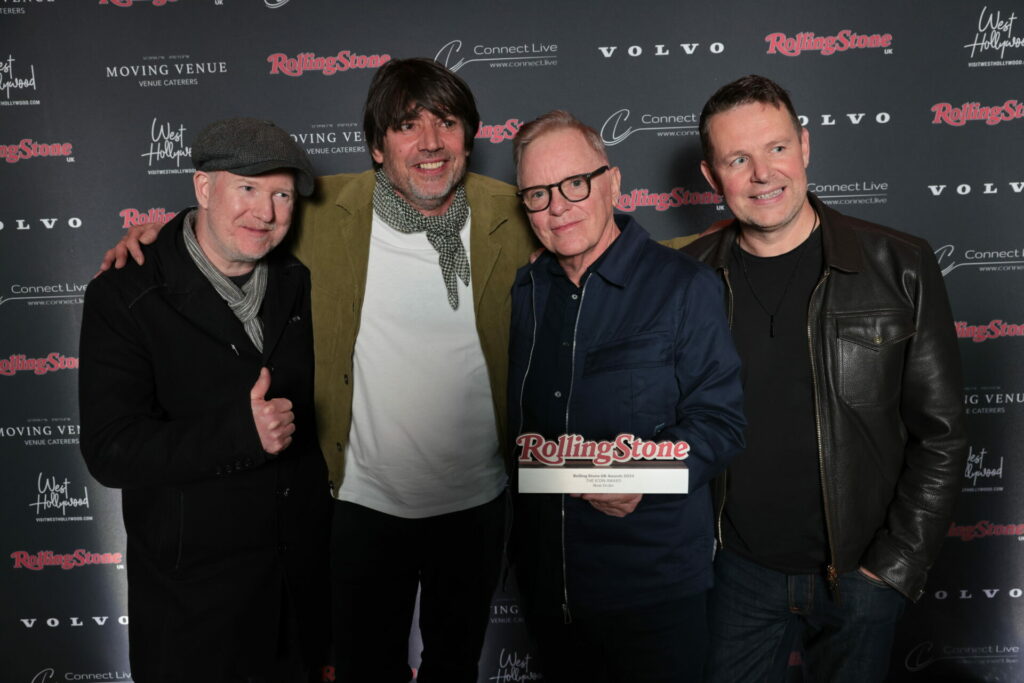How New Order forged their own path to become icons
After winning the Icon Award at the Rolling Stone UK Awards last week, here's how New Order achieved that status.

When New Order emerged from the ashes of Joy Division at the dawn of the 1980s, they imagined a different future. After being at the vanguard of post-punk with their first band, Bernard Sumner, Peter Hook and Stephen Morris — joined a year later by keyboardist Gillian Gilbert — created a dance/rock hybrid with New Order that defined the decade and remains incredibly influential 40 years later.
It’s understandable that New Order wanted to look forwards from the outset, given that their painful past was defined by the suicide of Joy Division singer Ian Curtis. To do this, they added shimmering synths from Gilbert and a danceable beat to the bopping bass of Hook and Morris’ reputation as the “human metronome” behind the kit. In Sumner, they had an initially hesitant but eventually fantastic frontman.
The band became a key player on the revolutionary Manchester scene of the 80s, revolving around their label Factory Records and the Haçienda nightclub. As Gilbert says in the recent book I Thought I Heard You Speak: Women at Factory Records, the label was also a progressive force in gender equality in the music industry. “There was never anything about macho blokes,” she wrote. “We were all one, and I wasn’t any different to anybody else, and the whole Factory thing was like that. There were a lot of women in Factory that gave as good as they got. It was never us and them — it was all just one big family.”
In ‘Blue Monday’, ‘Temptation’, ‘True Faith’, ‘Age of Consent’ and beyond, this hybrid sound defined the UK’s music scene in the 1980s, giving a second chance to this group of supremely talented musicians. At their celebratory live shows and on experimental latter-day material, they continue to innovate.
In recent years, the band have also supported mental health causes, with sales of ‘Blue Monday’ T-shirts benefiting suicide prevention charities. They have also lobbied governments to scrap touring visa charges to help up-and-coming artists and continued to support progressive politics. They’ve proved that you can age gracefully while remaining plugged into the issues of the day, rather than following many of their peers with out-of-touch rants and an us vs them mentality.
Asked in 2022 what the secret to the band’s longevity was, Sumner replied: “I don’t like to analyse it. I think the best way to be good at what you do is just to forget yourself.” What began in the shadows of tragedy turned into a musical revolution, and 2024 sees New Order continuing to push fearlessly into the future. They are, simply put, icons.
